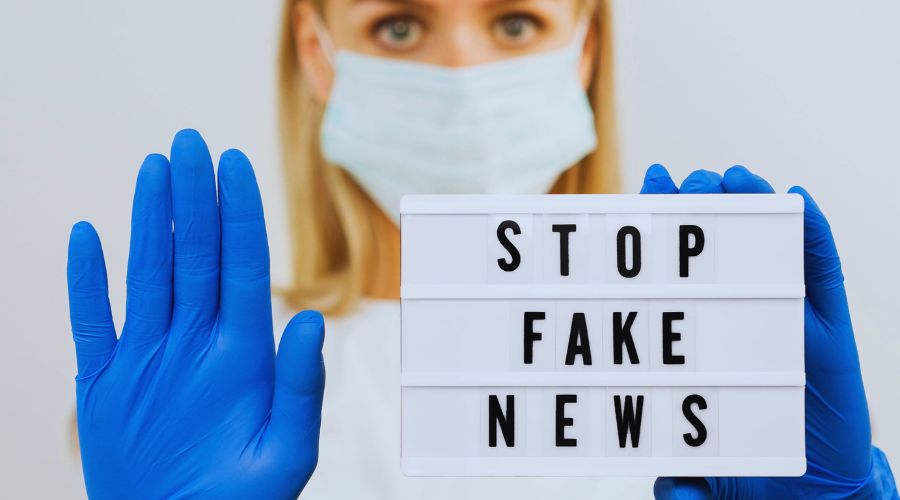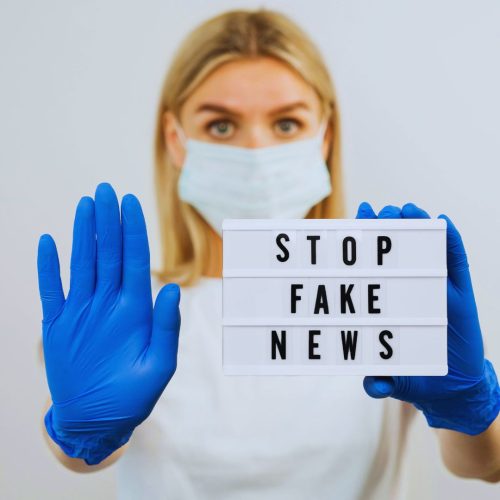Healthcare misinformation is a growing threat, affecting patient decisions and leading to dangerous health outcomes worldwide.

Image courtesy of https://www.freepik.com/
Addressing this issue requires a comprehensive strategy that leverages the power of online education to reach and empower patients.
The digital age has opened new doors for accessing medical information. Unfortunately, this also brings widespread misinformation.
Patients increasingly rely on the internet for health advice. However, not all information is accurate. Misinformation often spreads faster than facts, leading to misconceptions.
The Dangers of Healthcare Misinformation
The consequences of misinformation can be severe. Patients may delay proper treatment or pursue unproven therapies.
Some false claims encourage avoiding life-saving treatments like vaccines or prescribed medications. When patients believe in misinformation, it affects their ability to make informed decisions.
Inadequate healthcare access can lead to higher rates of illness and death in underserved communities. To address health disparities, a virtual medical assistant must implement targeted outreach and preventive care programs.
Online education has become essential in combating these dangers. Providers can correct false narratives and guide patients to trustworthy sources.
As misinformation proliferates, education efforts must adapt accordingly.
Why Online Education is Key
Healthcare misinformation often thrives in the absence of clear, accessible information. By educating patients online, professionals can bridge that gap.
The internet provides an unmatched platform for outreach. It allows healthcare providers to offer real-time, evidence-based resources to a global audience.
Patients tend to search online for answers before consulting doctors. Therefore, accessible, credible resources are crucial.
Educational content that is easy to understand helps patients make informed decisions. This reduces the likelihood of them falling victim to harmful misinformation.
The aim of online patient education should be to empower. With the right tools, patients are less likely to rely on unverified sources.
What Healthcare Providers Can Do Against Healthcare Misinformation:
- Provide Reliable Resources: Healthcare providers should ensure patients have access to up-to-date, credible information. This could include creating educational materials or linking to reputable sources like the CDC or WHO.
- Use Social Media Effectively: Social platforms are often the breeding ground for misinformation. Healthcare professionals can use these same platforms to spread accurate information. Engaging with patients directly through comments, Q&A sessions, or videos can significantly improve trust.
- Encourage Critical Thinking: Teach patients how to assess the reliability of health information online. This involves guiding them to consider the source, the evidence, and potential biases. Promoting critical thinking skills reduces the likelihood of being misled by false claims.
Strategies for Combating Healthcare Misinformation
Online education can be highly effective, but it needs to follow some key strategies to succeed.
Here’s how:
- Content Simplification: Simplify medical information without losing accuracy. Complex jargon can alienate patients. Clear, simple language helps people better understand health issues.
- Visual Aids and Infographics: Use infographics or videos to break down complex topics. These formats are easily digestible and shareable. They help communicate essential health information in a more engaging way.
- Interactive Tools: Provide quizzes, symptom checkers, or interactive FAQs to involve patients actively. These tools can guide users through the process of understanding symptoms and treatment options.
- Tailored Messaging: Different demographics consume information differently. Tailoring messages to specific groups ensures relevance and resonance. For instance, younger people may prefer mobile-friendly content and social media posts, while older patients might value more detailed online articles or brochures.
Benefits of Engaging Patients Online
Educational efforts online serve multiple purposes. They not only inform but also build trust between healthcare providers and patients.
Trust is crucial when combating misinformation. Patients who consider their doctors credible and reliable are more inclined to adhere to prescribed treatments.
Furthermore, online education allows for scalability. Providers can reach thousands, even millions, of patients through websites, apps, and social media platforms.
This broad reach ensures that more people can access reliable health information.
By offering accurate, accessible education online, healthcare professionals reduce the influence of misinformation.
The more patients can rely on factual, well-presented information, the less likely they are to believe in myths or misinformation.
The Power of Patient Advocacy
Educated patients can also become advocates. Once patients learn how to identify reliable information, they can share it with friends and family.
This creates a ripple effect that helps combat misinformation in communities.
Encouraging patients to advocate for accurate health information helps spread the truth. Patients who are empowered through education become part of the solution.
Conclusion
Combating healthcare misinformation through online patient education is an essential modern strategy. It offers healthcare providers a way to directly counter misinformation and improve public health outcomes.
The internet is a powerful tool, and when used correctly, it can dispel myths and foster understanding. By focusing on accessible, patient-friendly information, healthcare providers can mitigate the harm caused by misinformation.
Ultimately, the key to reducing healthcare misinformation lies in empowering patients. Through proper education and trustworthy resources, we can ensure patients make informed, healthy choices.







